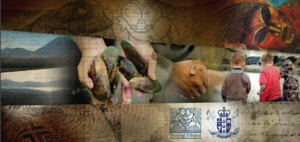Treaty-based policies – the Waitangi Day Challenge
With Waitangi Day coming up, improving on our Treaty-based policies is the challenge.
The historical travesty of Treaty breaches by the Crown, racism and the intergenerational impacts are widely acknowledged in Aotearoa. Remediation requires strong policies to support Kaupapa Māori initiatives and if you’re a mainstream agency, policies to guide your agency’s commitment to equitable social and health outcomes for Māori and eliminate racism.
Treaty-based policies – the Policy Place approach

In a previous post, we outlined the Principles of Te Tiriti o Waitangi from the Waitangi Tribunal in its Hauora Report. At the Policy Place, we use these principles along with compliance criteria to inform policy content for our online members and for our reviews and updates of members’ policies.
Contact us about joining our online policy service if you like the idea of having your policies reviewed and updated.
If, you prefer the DIY approach, we suggest you apply these principles when developing, reviewing and updating your organisation’s policies and procedures.
Treaty-based policies for health and disability services
 If you’re a health and disability agency, policy content has to answer the criteria in Ngā Paerewa Health and Disability Standard 8134:2021. Criteria outlined in Outcome 1: Our rights are important in this regard, including the requirements for services to:
If you’re a health and disability agency, policy content has to answer the criteria in Ngā Paerewa Health and Disability Standard 8134:2021. Criteria outlined in Outcome 1: Our rights are important in this regard, including the requirements for services to:
- Embed and enact Te Tiriti o Waitangi across the organisation and its work (1.1.1)
- Cultural safety (1.1.2)
- Be Māori-centred to support equitable outcomes (1.1.4)
- Recognise Māori mana motuhake (1.3.5)
- Promote an environment in which it is safe to ask the question ‘how is institutional and systemic racism acting here?” (1.5.5).
Social Sector Accreditation Standards (Level 2)
If you’re an agency funded by the ministries of Social Development or Justice or by Corrections and are subject to Level 2 of the Social Sector Accreditation Standards, different but far less onerous criteria apply to meet the expected standard of Cultural Competence. The criteria aim at culturally appropriate services. They do not necessitate the assessments and interrogation of self and system prescribed by Ngā Paerewa.
But why not aim for this higher standard, the stronger criteria? That’s the approach we take at the Policy Place. The disparities between Māori and non-Māori in areas like income, housing, justice, and prisons are, after all, comparable to those that exist in the health and disability areas.
Treaty-based policies in action
Treaty-based policies are a good start. But they are not enough. Action is needed.

A plan to guide how policy implementation can help. It’s also a requirement of Ngā Paerewa.
Many of our members have their own plans. But for those who don’t, the Policy Place provides a template they can use to plan steps to implement their Treaty-based policies and address other inequities.
For Waitangi Day, we urge members to review their plans and the progress they have made with them. Compile and keep the evidence and outcomes of review for audit purposes. Make adjustments based on what data tells you about the outcomes your service is achieving, client/patient feedback about their experiences and rates of access and usage of your agency,
How we can help
Compliance is a big job especially if it’s part of a management role that demands your attention on so many other things. We can help with that – imagine your life without the worry of ongoing reviews and updates of your policies and procedures!
Contact us at the Policy Place to talk about your policy needs and how we can support you.
